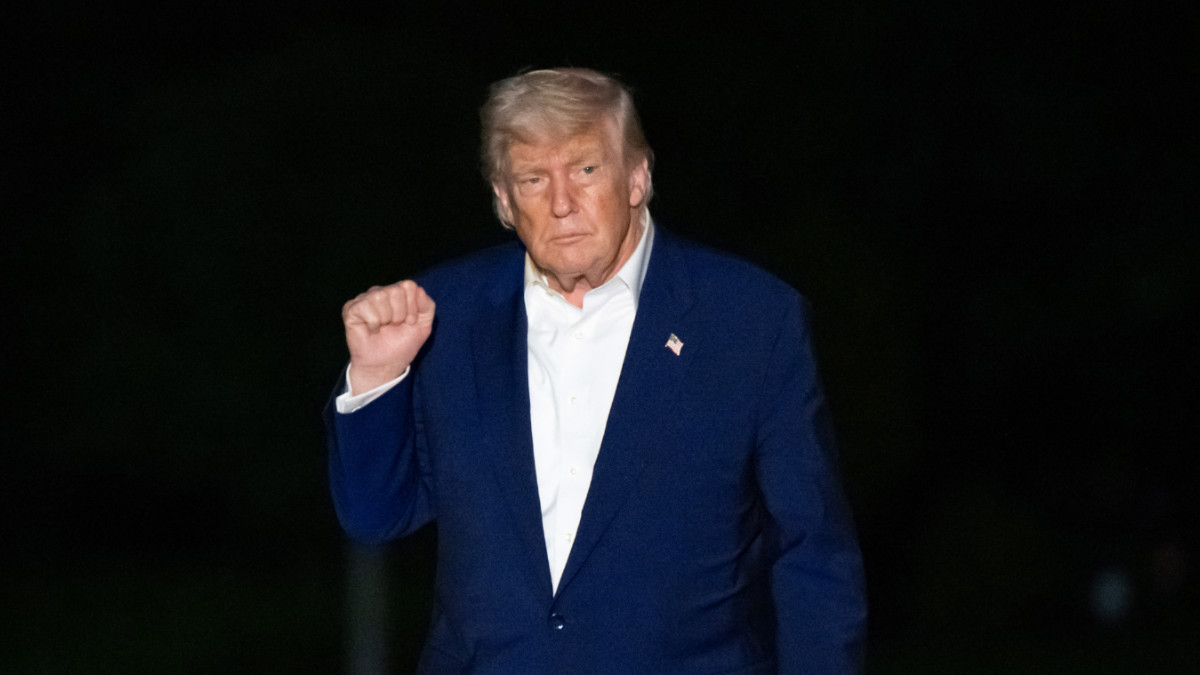Poll shows Trumps Republican base support nuclear deal as lawmakers push back

A majority of Americans, including US President Donald Trump’s base, say they prefer a deal with Iran on its nuclear programme over military action, as Congressional Republicans press Trump to take a hard line in talks with Iran.
The poll, released on 12 May by the University of Maryland's critical issues programme, shows that 69 percent of Americans view a negotiated agreement to limit Iran’s nuclear programme with monitoring as the best way to prevent Iran from obtaining nuclear weapons.
Notably, 64 percent of Republicans say they want a deal, too.
The poll suggests that Trump may have grassroots support within his party to make a nuclear deal with Iran. It comes as his top negotiator, Steve Witkoff, took a hard line on the talks.
"We have one very, very clear red line, and that is enrichment. We cannot allow even one percent of an enrichment capability," Witkoff said during an ABC interview aired on Sunday.
New MEE newsletter: Jerusalem Dispatch
Sign up to get the latest insights and analysis on Israel-Palestine, alongside Turkey Unpacked and other MEE newsletters
His statement was seen by analysts as a non-starter for Iran, which insists its “red line” is preserving the right to enrich uranium at low levels for a civilian nuclear programme.
Witkoff’s ABC interview was aired after more than 200 Republican members of Congress - every lawmaker except Senator Rand Paul - sent a letter to Trump asking him to commit to a hard line on Iran.
The lawmakers called for a deal that would completely dismantle Tehran’s nuclear enrichment programme.
The US has sent mixed signals on whether it would allow Iran to enrich uranium. Witkoff said earlier this year that Washington would allow Iran to enrich uranium at low levels. After backlash from pro-Israel voices in the Republican Party, he flipped.
'Narrow window for diplomacy'
The issue of whether Iran can enrich or not has become the crux of negotiations between the two countries.
The US and Iran had their fourth round of talks in May in Oman. Oman has mediated between the two sides, but Witkoff has also met directly with Iranian Foreign Minister Abbas Araghchi.
Aragchi said on Sunday he was observing “dissonance” between the US’s public and private positions on the negotiations. He pushed back on Witkoff’s demand that Iran fully abandon enrichment. He said Tehran would continue enrichment "with or without a deal”.
Trita Parsi, the executive vice president of the Quincy Institute for Responsible Statecraft, wrote that Witkoff’s position on zero enrichment may have been a "bargaining tactic” but risked “poisoning the atmosphere” of talks.
“As soon as Iran starts reciprocating, optimism could curdle into confrontation, slamming shut Trump’s narrow window for diplomacy,” he wrote on Monday.
Experts have been warning for months that the talks between Iran and the US face a critical window going into the summer because so-called “snapback” sanctions would be reinstated by the UN.
Although the deadline for those sanctions is October, experts say any deal would have to be hashed out by the summer in order to navigate the sanctions process.
Iran obtained sanctions relief after it signed the 2015 nuclear deal with the Obama administration. That agreement allowed Iran to enrich uranium to 3.67 percent, with international monitoring.
Trump unilaterally withdrew from the deal in 2018 and imposed sanctions on Iran. Monitors said that Iran was complying with the 2015 deal’s enrichment terms.
Nuclear consortium
One bridge proposal that has been floated between the two sides is for Iran to enrich uranium as part of a regional consortium that includes Saudi Arabia and the UAE, with US investment.
Iranian foreign ministry spokesman Esmaeil Baqaei on Monday denied that the Islamic Republic had been the one to introduce the idea, which several news outlets reported, but said it was discussed and Iran was open to it.
”One of the justifications [for such a proposal] is that the Middle East region and the Persian Gulf countries may need nuclear power and would like to build new power plants, and these power plants require nuclear fuel," Baqaei said during a press briefing.
"If such an initiative is proposed, we would welcome it and could also participate in it, but it should be noted that such an initiative is in no way intended to replace Iran's uranium enrichment programme," he added.
In 2018, Trump was supported by Republican lawmakers, Israel and Gulf states in ramping up sanctions on Iran. One key difference now is that Gulf states are lobbying the Trump administration to strike a deal with Iran, after having pursued a rapprochement with Tehran.
Saudi Foreign Minister Prince Faisal bin Farhan said after Trump’s visit to Riyadh last week that the kingdom “fully supports” the nuclear talks.
“If, for instance, the US and Iran can successfully conclude their nuclear negotiations, that will remove a huge burden of risk in our region, and will open up significant avenues for even greater cooperation, greater regional integration, greater region cooperation, trade, investment,” he said.
Support from the UAE and Saudi Arabia could help Trump tone down criticism from some US lawmakers. The 2015 nuclear deal was never ratified as a treaty in the US Senate, and Trump does not need congressional approval to return to a deal like the Obama-era one.
middleeasteye.net